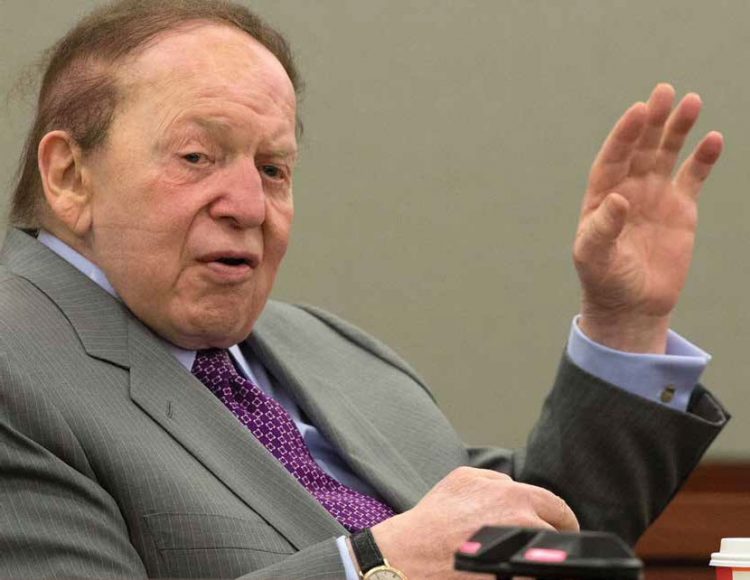Sheldon Adelson muscles a bill to outlaw Web gambling into the US Congress
Sheldon Adelson’s crusade against online gambling in the United States has scored its first victory in the form of companion bills introduced last month in the Senate and House of Representatives to outlaw the industry.
South Carolina Sen. Lindsey Graham and Rep. Jason Chaffetz of Utah, both Republicans from conservative Republican states, are sponsoring the legislation, which is designed to shut the door the US Justice Department opened in 2011 with a legal decision that reinterpreted a decades-old federal prohibition on interstate gambling to apply only to sports betting.
Since then three states—Nevada, New Jersey and Delaware— have legalized Web gambling in different forms, and more taxhungry state governments are expected to follow.
The American Gaming Association responded to the bills immediately and critically. The land-based casino industry’s Washington lobbying arm supports legalization in line with the interests of its dominant Las Vegas-based members, MGM Resorts International and Caesars Entertainment.
“It’s really simple. This ban on all Internet gaming would make American families and consumers less safe online,” said Mary Bono, a Republican former House member who chairs the AGA’s recently formed Coalition for Consumer and Online Protection. “There isn’t any question whether Americans are gaming online. They are,” she said. “Congress should be focused on keeping them safe, not shutting down existing consumer protections.”
The legislation also is being watched closely by Nevada senators Harry Reid, a Democrat who holds the powerful position of majority leader, and Republican Dean Heller, both of whom want a carve-out for online poker consistent with the law in effect in Nevada, which authorizes only poker.
The Democratic Governors Association, representing states considering legalization or with state-sponsored lotteries looking to expand online, also responded by releasing a letter objecting to the bills. Among AGA members, Mr Adelson’s Las Vegas Sands Corp. is the one outspoken opponent of Internet gambling. Steve Wynn’s Wynn Resorts is on record as skeptical of the financial benefits but so far has been sitting out the political fight.
Estimates of the revenue potential range nationally from US$3.5 billion to $5 billion, with some analysts projecting upwards of $9 billion. Mr Adelson, however, makes most of his money in Asia and believes Web gambling poses a societal threat, particularly to children and individuals vulnerable to problem gambling, that ultimately will damage the image and interests of the mainstream industry in the US, where LVS also has a significant presence. The company is backing a broad national campaign, led by a group called the Coalition to Stop Internet Gambling, to make sure that position is heard.

Mr Adelson’s lavish spending on US election campaigns guarantees him a ready audience among Republicans in Washington on domestic and international issues, namely with regard to labor unions, which he opposes, and the idea of a greater Israel, which he supports, and now online gambling. He became a major player in Republican politics in the 2012 elections when he spent more than $93 million in an unsuccessful effort to defeat Democratic President Barack Obama, and it’s expected that he’ll be writing massive checks again in this year’s congressional elections and in the 2016 campaign for the White House.




























